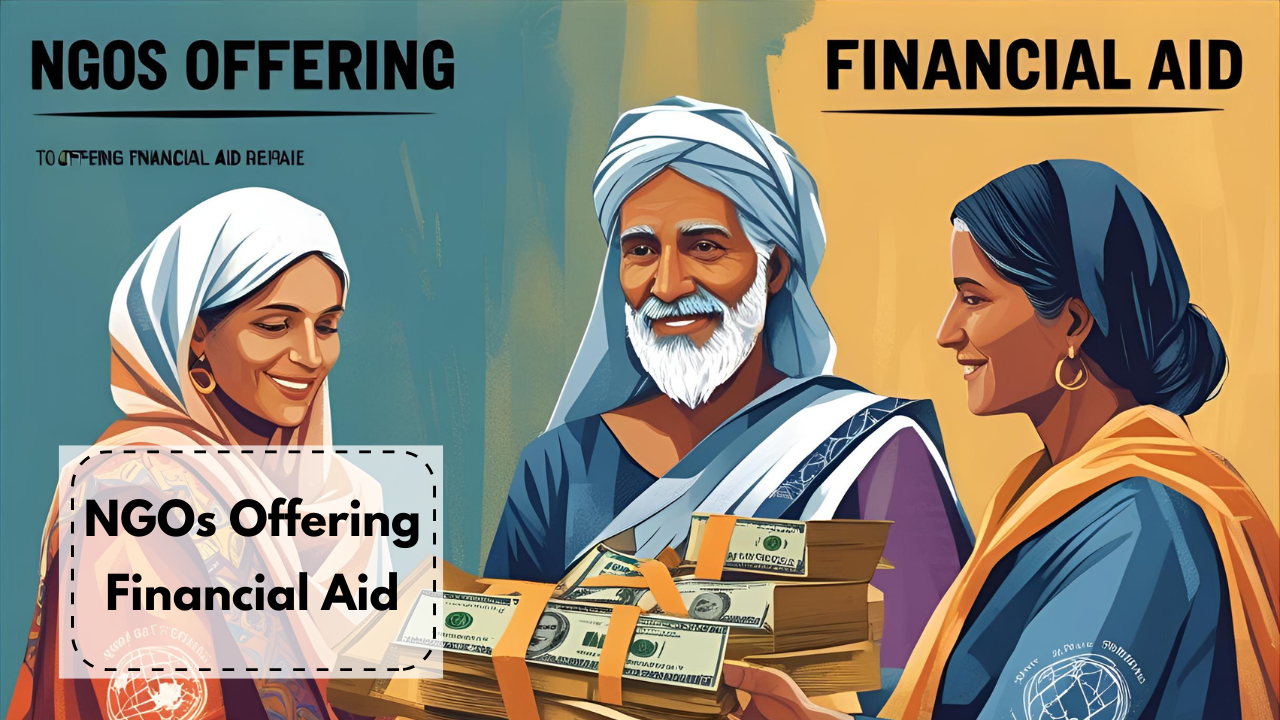In challenging times—be it economic hardship, natural disasters, medical crises, or sudden job loss—many people find themselves struggling to make ends meet. While government aid is one source of relief, non-governmental organizations (NGOs) also play a powerful and often immediate role in providing financial assistance and emergency relief to individuals and families in need.
This guide offers a comprehensive overview of where to find trusted NGOs that offer financial help, how to contact them, and what kind of support they provide.
Table of Contents
- Why NGOs Play a Vital Role in Relief Support
- Who Can Apply for NGO Assistance?
- Types of Financial Aid Offered by NGOs
- Top NGOs Providing Aid Globally and Locally
- How to Apply for NGO Support
- What Documents Are Typically Required
- Tips for Successfully Requesting Assistance
- Final Thoughts: Help Is Closer Than You Think
1. Why NGOs Play a Vital Role in Relief Support
While governments have official programs for social welfare, NGOs often step in when speed, flexibility, or coverage are limited. These organizations are community-focused, frequently donor-funded, and operate with a mission to address poverty, disaster recovery, medical emergencies, and humanitarian needs.
NGOs can often respond faster than government agencies, providing not only money but also essentials like food, housing, school fees, and mental health support.
2. Who Can Apply for NGO Assistance?
Eligibility depends on the specific NGO and its mission, but many NGOs prioritize the following groups:
- Low-income families and individuals
- Unemployed or underemployed workers
- Women and children in crisis
- People affected by natural disasters or conflict
- Individuals with chronic illnesses or disabilities
- Migrants, refugees, and displaced persons
- Senior citizens and veterans
- Students or orphans needing educational support
In most cases, you do not need to be affiliated with any organization or religion to qualify.
3. Types of Financial Aid Offered by NGOs
NGOs offer a wide range of assistance depending on their focus areas. Common forms of aid include:
- Emergency cash grants for rent, utilities, or food
- Medical bill assistance and prescription aid
- Educational scholarships or school supplies
- Housing assistance for the homeless or displaced
- Disaster relief funds for those impacted by fires, floods, or storms
- Micro-loans for small business owners
- Mental health counseling and trauma support
- Legal aid and immigration assistance
Some NGOs provide one-time assistance, while others offer ongoing support for a fixed period.
4. Top NGOs Providing Aid Globally and Locally
Here’s a list of well-known and trusted NGOs currently offering financial and emergency aid in 2025:
| Organization | Area of Focus | Website / Contact |
|---|---|---|
| Catholic Charities USA | Housing, food, disaster relief | catholiccharitiesusa.org |
| Salvation Army | Rent, utilities, shelter, and family services | salvationarmyusa.org |
| United Way | Community grants, job training, emergency needs | Call 211 or unitedway.org |
| Direct Relief | Medical aid, disaster supplies | directrelief.org |
| Feeding America | Nationwide food bank network | feedingamerica.org |
| International Rescue Committee (IRC) | Refugee support, cash aid, housing | rescue.org |
| GiveDirectly | Direct cash transfers to people in poverty | givedirectly.org |
In addition to national NGOs, many local nonprofits, faith-based charities, and community foundations also offer assistance. Visit local directories or contact city social service offices for area-specific options.
5. How to Apply for NGO Support
Applying for financial assistance through NGOs is usually simple and can often be done online or in person. Here’s a general process:
Step 1: Identify the Right NGO
Search for organizations that focus on your specific needs—such as rent relief, food, or disaster aid.
Step 2: Visit Their Website or Office
Many NGOs provide online application forms, while others require an in-person appointment.
Step 3: Submit Required Information
You’ll usually need to describe your situation, provide proof of income or hardship, and explain what kind of help you need.
Step 4: Follow Up
After submitting your application, be sure to follow up via phone or email to check the status of your request.
6. What Documents Are Typically Required
To qualify for NGO assistance, be ready to provide:
- Government-issued photo ID
- Proof of income (pay stubs, benefits letter, tax return)
- Utility bills or rent lease (for housing help)
- Medical records or prescription (for health aid)
- School documents (for educational grants)
- Proof of crisis (eviction notice, job termination, disaster impact)
Note: Documentation requirements vary, so always review the NGO’s specific guidelines.
7. Tips for Successfully Requesting Assistance
Here’s how to improve your chances of receiving help:
- Be honest and detailed about your situation
- Apply early—many NGOs have limited funds
- Check eligibility before applying to save time
- Ask for referrals—if one NGO can’t help, they may connect you with others
- Stay patient but persistent—follow up if you don’t hear back within a week
Also, keep in mind that NGOs operate on donations, so their resources may fluctuate.
8. Final Thoughts: Help Is Closer Than You Think
When life takes an unexpected turn, NGOs can provide a lifeline. Whether you need help paying rent, buying food, covering medical bills, or recovering from a natural disaster, there’s likely a nonprofit or charitable organization ready to assist.
Take the first step—reach out, apply, and ask for support. These organizations exist to serve communities just like yours. And remember, seeking help isn’t a sign of weakness—it’s a step toward stability and recovery.

